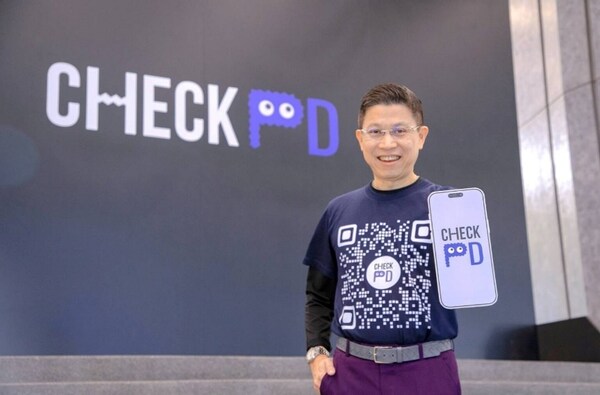
King Chulalongkorn Memorial Hospital and Thai Red Cross Society have launched the "Check PD" application for Parkinson's risk screening after statistics show that the disease rate among Thai people has increased and is found in individuals under 60 years old. The application boasts an accuracy rate of screening at 90%. Thai people, especially those 40 years and above, are encouraged to download the application to seek preventive methods or timely treatment.
Assoc. Prof. Dr Chanchai Sittipunt, Dean of the Faculty of Medicine, Chulalongkorn University, and Director of King Chulalongkorn Memorial Hospital, said that the Check PD application is an innovation that uses digital technology, big data analytics, and artificial intelligence to help diagnose Parkinson's disease (PD) symptoms.
Early detection is crucial for proper treatment planning and care, in line with King Chulalongkorn Memorial Hospital's strategy to create healthcare innovations, develop modern, accessible services, and improve the people's quality of life. The app represents successful collaboration between sectors, demonstrating commitment to implementing new technologies and innovations in healthcare. It helps those at risk of Parkinson's plan appropriate healthcare, prevention, and treatment.
Prof. Dr Roongroj Bhidayasiri, Director of the Center of Excellence for Parkinson's Disease & Related Disorders (ChulaPD), Faculty of Medicine, Chulalongkorn University, revealed that Parkinson's disease doesn't show immediate symptoms but develops gradually over 10-20 years on average. The most recognizable sign is tremors. However, early warning signs like chronic constipation, sleepwalking, and acting out dreams during sleep, etc., are often seen as normal, leading to delayed medical attention. While the elderly are the primary risk group, those over 40 are also at risk. Statistics show that Parkinson's is inclined to affect increasingly younger patients, and, given the disease's long progression period, early risk screening is essential for prevention and treatment to minimize severe symptoms, suggested Prof. Dr. Roongroj.




